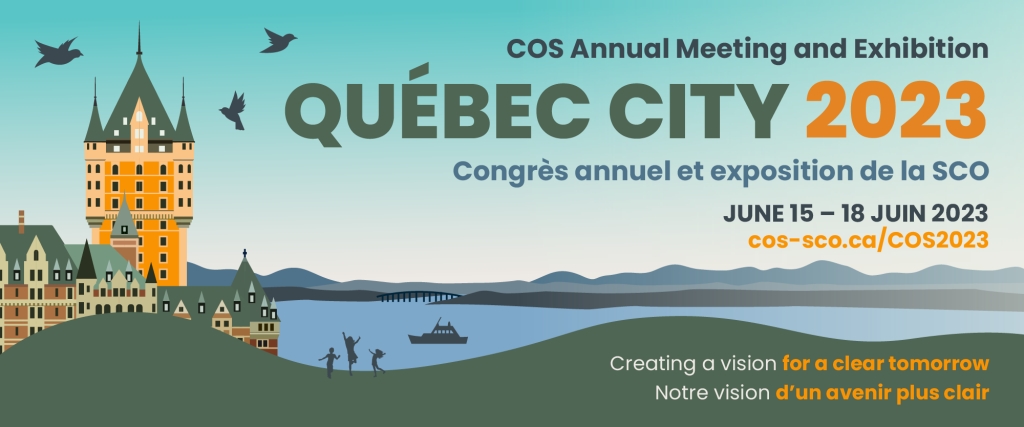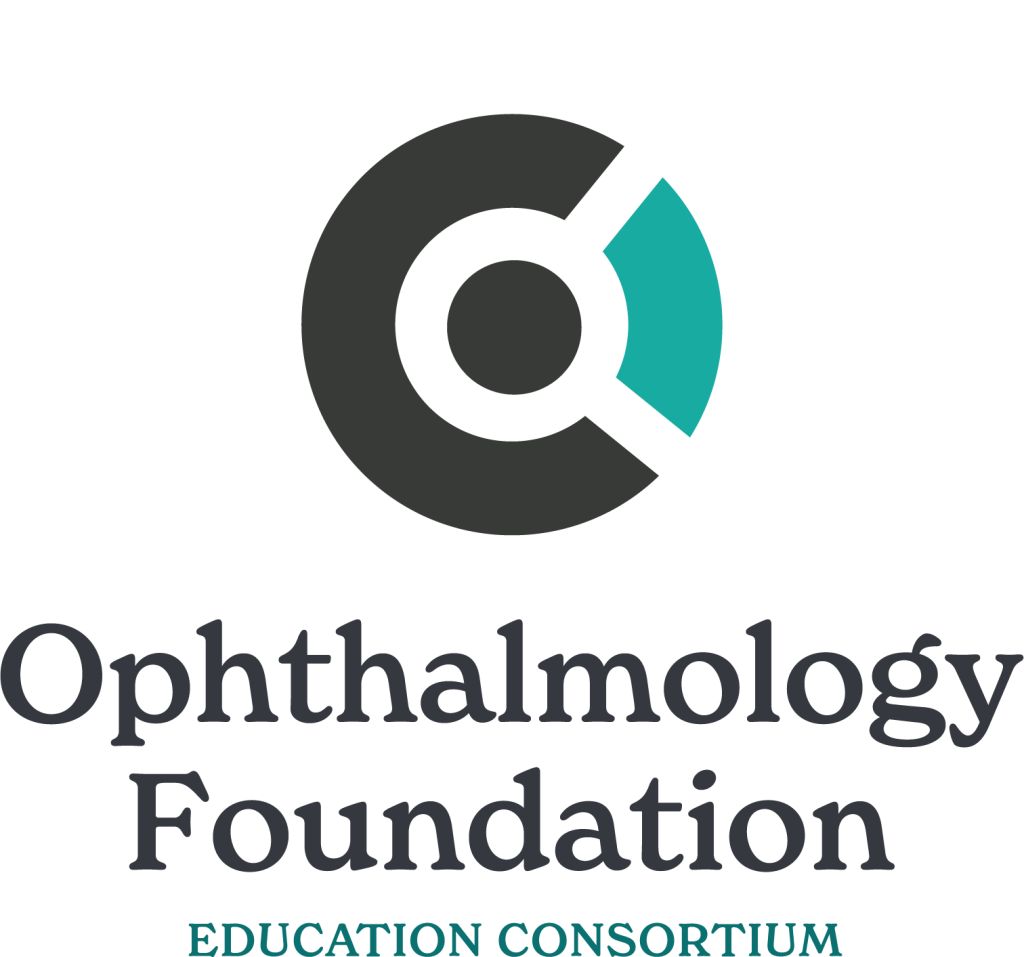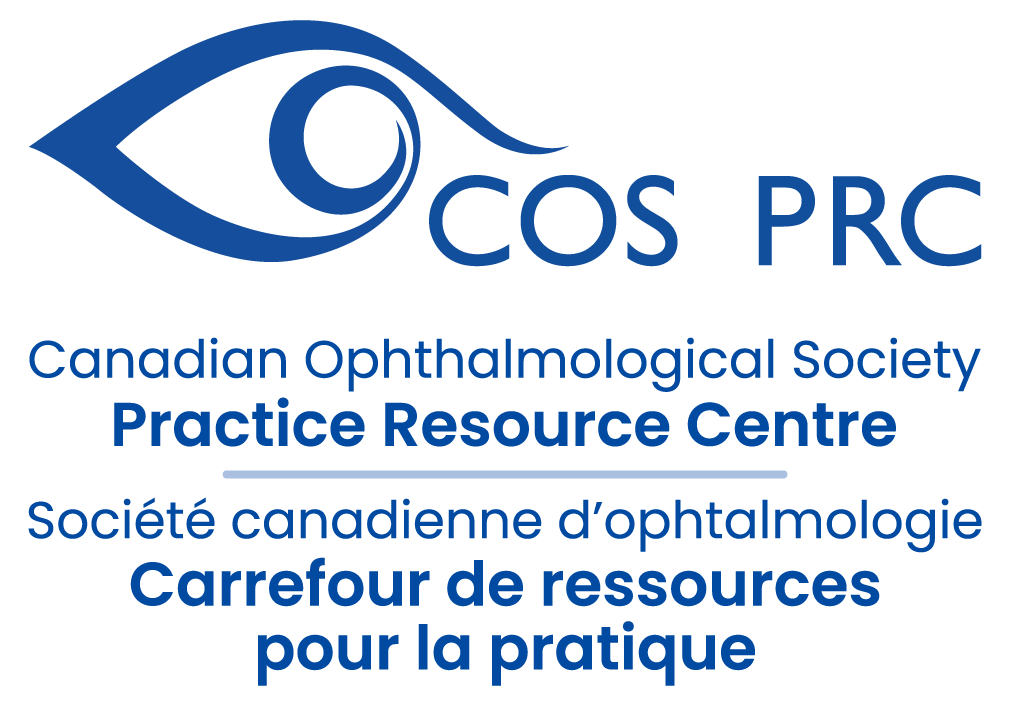Congrès annuel et exposition 2023 de la SCO

Appel de résumés
Congrès annuel et exposition 2023 de la SCO
Appel de résumés
(Québec City, Québec.), du 15 au 18 juin 2023
DÉBUT DE LA PÉRIODE DE PRÉSENTATION DES RÉSUMÉS : 6 septembre 2022
DATE LIMITE POUR LA PRÉSENTATION DES RÉSUMÉS : 7 novembre 2022 à 23 h 59 HE
Avant de transmettre votre résumé, veuillez passer en revue les lignes directrices pertinentes concernant les résumés :
Lignes directrices concernant les résumés sous forme d’article ou d’affiche virtuelle
Lignes directrices concernant les résumés des vidéos d’interventions chirurgicales
La Société canadienne d’ophtalmologie (SCO) accepte les résumés pour les séances des surspécialités suivantes
- Cataracte*
- Cornée, maladies externes et chirurgie réfractive
- Équité, diversité et inclusion
- Glaucome
- Santé publique et ophtalmologie mondiale
- Neuro-ophthalmologie
- Médecine oculaire régénérative
- Oculoplastie et chirurgie reconstructive
- Pathologie ophtalmique*
- Ophtalmologie pédiatrique et strabisme
- Rétine*
- Uvéite
- Réadaptation visuelle
FORMAT
Tous les résumés doivent être présentés sous forme de résumé écrit contenant des renseignements sous cinq (5) rubriques principales, à savoir : l’objet, le plan d’étude, les méthodes, les résultats et les conclusions, indépendamment de la préférence de présentation. Au moment de transmettre votre résumé, vous pouvez choisir l’un des deux formats de présentation privilégiés :
- Article : présentation orale de 7 minutes, sauf indication contraire au moment de l’acceptation et de l’invitation.
- Affiche virtuelle : Présentation d’une affiche électronique (affiche virtuelle) (une diapositive en format Power Point décrivant votre recherche). Toutes les affiches acceptées doivent être transmises en format numérique avant le Congrès.
*Veuillez prendre note des exceptions qui suivent pour certains sujets :
- Cataracte : Les présentations d’article seront de 3 minutes; les présentations doivent inclure une diapositive pour les méthodes, une diapositive pour les résultats et une diapositive pour les conclusions
- Rétine : Les présentations d’articles seront de 5 minutes.
- Pathologie ophtalmique : La préférence ira aux présentations de cas. Les présentations d’affiches ne sont pas acceptées pour la séance de la Société canadienne d’ophtalmo pathologie. Vous devez faire parvenir les résumés en pathologie ophtalmique par courriel directement au :
Nous nous préparons à accueillir le Congrès annuel et exposition de la SCO de 2023 en personne à Québec City, Québec., du 15 au 18 juin 2023.
VEUILLEZ PASSER EN REVUE L’INTÉGRALITÉ DES LIGNES DIRECTRICES CONCERNANT LES RÉSUMÉS AVANT DE TRANSMETTRE VOTRE RÉSUMÉ.
Lignes directrices concernant les résumés sous forme d’article ou d’affiche virtuelle
Lignes directrices concernant les résumés des vidéos d’interventions chirurgicales
Pour de plus amples renseignements, communiquez avec :
Canadian Ophthalmological Society
Phone: 613-729-6779 ext 235 | Email: [email protected]
DOVS RESIDENT TEACHING – IN PERSON SESSION – Systemic conditions and Neuro-op AND Supranuclear and Infranuclear
Date: Friday September 16, 2022
Time: 8:45 AM – 12:00 PM
Location: Kensington Gardens – 45 Brunswick Ave., Toronto, M5S 3M3
*Please arrive early to perform at Rapid Antigen Test at the door, or you may perform one at home prior to arriving and take a date/time-stamped picture of your result*
Room: Multi-purpose Room
Topic: Systemic conditions and Neuro-op AND Supranuclear and Infranuclear
Speaker: Drs. J. Micieli and E. Margolin
DOVS GRAND ROUNDS – When Double Means Trouble
Date: Friday
September 16, 2022
Time: 7:30 AM – 8:30 AM
Topic: When Double Means Trouble
Speaker: Dr. Cindy Lam
Zoom Link – Register in advance for this webinar:

After registering, you will receive a confirmation email containing information about joining the meeting.
Objectives:
1) Causes of cranial nerve 6 palsy in adults vs children
2) Indications for imaging of cranial nerve 6 palsies
3) Approach to multiple oculomotor palsies
4) Localization of orbital apex, superior orbital fissure, and cavernous sinus pathology
Ophthalmology Foundation Education Consortium Newsletter

August 2022 Edition
This months’ newsletter features the following topics:
- Teaching Skills for Ophthalmic Educators Online Series – Module 14: How to Teach Using Social Media
- AAO 2022: Ophthalmic Educators Workshop: Optimizing Your Surgical Curriculum
- Teaching the Trainers Workshops at the 9th Annual Scientific Congress of the College of Ophthalmology of Eastern Central and Southern Africa (COECSA) 2022
- International Direct Observation of Clinical Skills (iDOCS)
- Recap: Reddit Ask Me Anything
- This Month’s Resources
For more information on these topics and to register for any of the courses, please click on the download link:

Cornea Surgical Video Learning Series – Surgical Management of Keratoconus: CXL & CAIRS

Wills Eye Hospital and the University of Toronto are excited to bring you the next installment of the Cornea Surgical Video Learning Series
Date: Thursday Sept 22nd 2022
Time: 1930 -2100 EDT
Co-moderated by Professor Sadeer Hannush (Wills Eye Hospital) and Professor Allan Slomovic (University of Toronto).
Keynote Presentation:
Soosan Jacob, MS, FRCS, DNB
Director and Chief, Dr Agarwal’s Refractive and Cornea Foundation
Guest panelists
David Rootman, MD FRCSC and Neera Singal, MD FRCSC (University of Toronto)
Christopher Rapuano, MD and Irv Raber, MD FRCSC (Wills Eye Hospital)
Surgery Case Presentations:
Shai Gendler, MD (University of Toronto)
Patrick Burbano, MD (Wills Eye Hospital)
Register in advance for this webinar:

After registering, you will receive a confirmation email containing information about joining the webinar.
The evening will as usual be recorded and placed online for viewing.
CME credits are available for the following:
· Royal College Maintenance of Certification Section 1: 7.5 hours (1.5 Section 1 hours per session)
· American Medical Association Category 1: 7.5 credits (1.5 Category 1 credits per session)
· European Union for Medical Specialists UEMS-EACCME®: 7.5 credits (1.5 ECMEC credits per session)
DOVS RESIDENT TEACHING – IN PERSON SESSION – CN 7 and lid + Imaging AND Headaches and Facial Pain, Functional Visual Loss
Date: Friday September 2, 2022
Time: 8:30 AM – 12:00 PM
Location: Kensington Gardens – 45 Brunswick Ave., Toronto, M5S 3M3
Room: Multi-purpose Room
Topic: CN 7 and lid + Imaging AND Headaches and Facial Pain, Functional Visual Loss
Speaker: Drs. Edsel Ing and Felix Tyndel
Form and Function in Ocular Disease Symposium

The Department of Ophthalmology & Visual Sciences at Dalhousie University presents its biennial symposium covering diverse topics in clinical ocular disease and visual neuroscience. The faculty includes world-class leaders in ophthalmology and vision research who will address topics ranging from treatments for inherited blindness to the role of biomechanics in ocular disease.
Date: Fri, 28 Oct 2022, 2:00 PM –Sat, 29 Oct 2022, 5:00 PM ADT
Location: University of King’s College, 6350 Coburg Road, Halifax, NS

Click the link below for more information and to register:

DOVS CORNEA ROUNDS – Presbyopia Correction in Patients with Corneal Pathology- the Do’s and Don’ts
Date: Thursday August 25, 2022
Time: 5:00 PM – 6:00 PM
Topic: Presbyopia Correction in Patients with Corneal Pathology- the Do’s and Don’ts
Speaker: Dr. Armand Borovik
Zoom Link – Register in advance for this webinar:

Objectives:
1. To understand the corneal conditions in which to avoid presbyopia correcting lenses
2. To understand circumstances of co-existing corneal pathology in which presbyopia correcting lenses may be considered
3. To look at specific cases of corneal pathology where presbyopia correcting lenses were used
DOVS CORNEA ROUNDS – Diagnosis and Management of Neurotrophic Keratopathy: Case Based Approach
Date: Thursday August 18, 2022
Time: 5:00 PM – 6:00 PM
Topic: Diagnosis and Management of Neurotrophic Keratopathy: Case Based Approach
Speaker: Dr. Clara Chan
Zoom Link – Register in advance for this webinar:

Objectives:
1. To review clinical signs of neurotrophic keratopathy and associated grading of disease stage.
2. To review etiologies of neurotrophic keratopathy.
3. To review established and novel management strategies based on standing of neurotrophic keratopathy.



